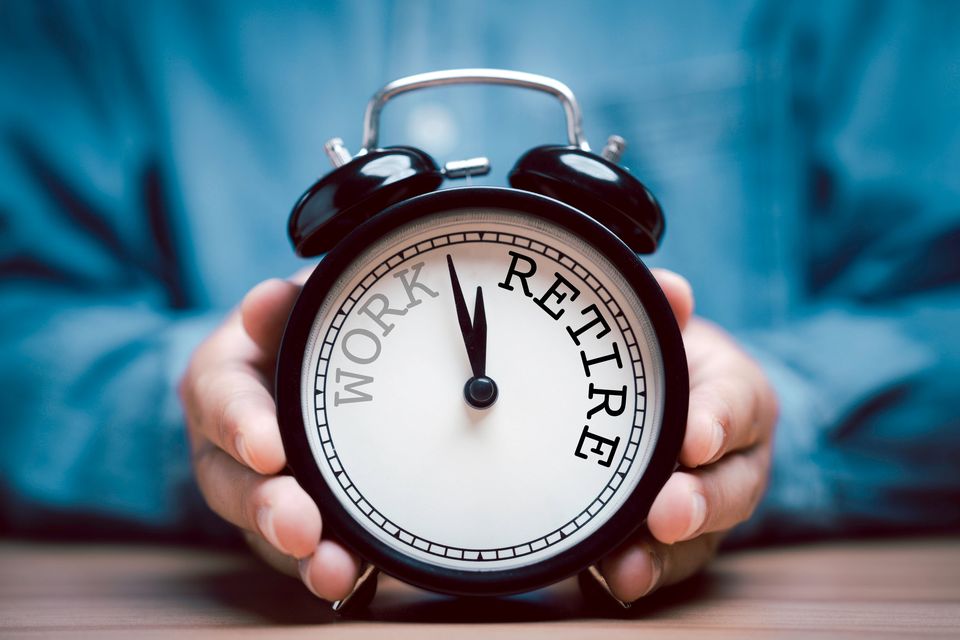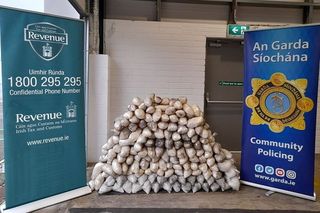Readers’ questions: ‘Is it wise to put a lump sum into my work pension scheme?’
AVCs let you get 40pc of your salary tax-free, so long as it goes into your pension
Sooner is better, but it's never too late to start saving for your future. Photo: Getty
Question: I’m 58 and contributing 20pc of my salary into my new employer’s defined contribution (DC) scheme each month, with the company contributing a further 5pc.
I understand the most I can put into a pension at my age is 35pc of my salary. Can I use my savings to make an additional voluntary contribution (AVC) equating to 35pc of my salary into the scheme for the 2023 tax year?
If it’s possible to pay an AVC equating to 15pc of my salary, on top of the 20pc I currently pay, how would I get tax relief on this AVC and would the relief come in the form of a tax refund or tax credits?
Would you recommend this AVC from a savings/tax point of view over investing the money elsewhere?
It seems like a no-brainer to me given I pay tax at the higher rate and nothing else will give me 40pc tax back in a year.
Hugh, Co Sligo
Answer: While you can pay in up to 35pc of your income into your pension when aged 55 to 59 (rising to 40pc once you turn 60), you should first check if your company scheme can accept AVCs. Normally there is a separate AVC scheme that operates alongside the DC scheme.
Relief on an AVC can be claimed on the Revenue Online Services (ROS) when you complete your yearly tax return. You have until the 2024 tax deadline (usually mid-November for online returns) to make your contributions for the 2023 year.
If you’re due a refund, Revenue will pay it to your personal bank account.
AVCs are ideal for tax-efficient savings as not only do you get tax relief at the higher tax rate for contributing to your pension, but you can benefit from tax-free investment growth (assuming you get such investment growth).
Once you retire, part of those savings will go towards the tax-free lump sum you receive and the remainder will incur income tax as it’s distributed to you. If your overall income in retirement is lower than it is now, you might be paying tax at the lower rate.
Speak to an financial adviser for more advice.
‘Should I opt for an ARF when I retire to continue investing my pension savings?’
Question: I’ll be retiring soon and have decided to opt for an Approved Retirement Fund (ARF) as I think it would be a good idea to continue investing my pension savings into retirement. How can I make sure I take the right approach to investing?
Catherine, Limerick
Answer: Investing your pension savings after you retire could mean you have more money in retirement. But it’s not without risk and brings with it some additional complications, namely an uncertain timeframe and the possibility of diminishing capacity as you grow older.
Therefore, it’s important you assess your long-term financial needs, including regular living expenses, discretionary spending, and healthcare costs that may increase over time.
In retirement, you may choose to focus on investments that generate a steady income stream.
Consider allocating a portion of your portfolio towards income-generating assets such as dividend-paying stocks, bonds and property to create a consistent cash flow throughout your retirement.
You’ll be able to draw down a certain amount of money from your ARF when you retire, and it’s crucial you do so in a way that preserves your pension savings for the rest of your retirement.
Factors like inflation and potential lifestyle changes would need to be considered.
One common approach is the systematic withdrawal method, whereby you withdraw a predetermined percentage – or fixed amount – annually from your ARF. This allows for regular income while providing flexibility for unexpected expenses or changes in market conditions.
It's important to seek guidance from a regulated financial adviser to help you identify suitable investments and make well-informed decisions that will maximise your pension savings.
‘I find pension jargon so intimidating that I’ve put off starting a pension’
Question: I’ve been put off starting a pension because I find the financial jargon around pensions so intimidating. Are there any rules of thumb that would help me get a sufficient pension off the ground?
Emily, Co Laois
Answer: It’s important to start a pension as soon as possible. Even contributing smaller amounts early in a career can help build a significant pot at retirement, thanks to compound investment growth.
Find a regulated independent financial adviser to help you calculate how much of a pension pot you’ll need and to provide information on the type of investments available that are in line with your personal circumstances and risk appetite.
Ask questions about pension administration costs, fund charges and broker commissions.
Ensure you know how much tax relief you’re entitled to on your pension contributions. The amount of pension tax relief you’ll be eligible for will depend on your age and salary.
Send your questions to g.monaghan@independent.ie
Join the Irish Independent WhatsApp channel
Stay up to date with all the latest news














